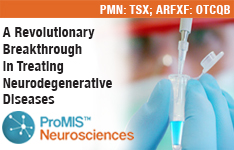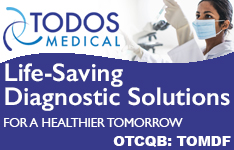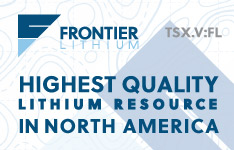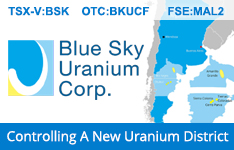ProMIS Neurosciences Inc. (PMN:TSX; ARFXF:OTCQB), headquartered in Toronto, Ontario, with offices in biotech hub Cambridge, Mass., is a biotechnology company that focuses on finding innovative treatments for neurodegenerative and other misfolded protein diseases like Alzheimer’s, Parkinson’s, amyotrophic lateral sclerosis (ALS), and multiple system atrophy (MSA). The company is taking a distinctive approach to finding powerful, highly targeted drugs to treat these diseases.
ProMIS’ Unique Approach to Treating Disease
ProMIS Neurosciences focuses on the discovery and development of antibody therapeutics that specifically target misfolded proteins associated with the development and progression of neurodegenerative and other diseases associated with misfolded proteins.
“A gene is a recipe for making a protein, and many things can go wrong in the process of creating that protein – and they can also go wrong once the protein is created,” ProMIS Neurosciences Chairman and CEO Eugene Williams told Streetwise Reports. “Proteins have to fold into exactly the right shape in order to do their job correctly. There are other ways that proteins can be dysfunctional, but we focus on the protein misfolding part.”
Many proteins that can misfold usually have a normal, healthy physiological role in the human body. But when the proteins misfold, they become toxic oligomers (molecules that consist of similar or identical repeating units) that kill neurons and replicate themselves in the body, causing certain types of disease.
The Role of Computational Modeling in Finding Effective Treatments
Part of ProMIS Neurosciences’ methodology involves using the power of supercomputing, combined with physics and biology, to predict the specific shape of misfolded proteins and identify targets for treatment.
According to ProMIS, its “proprietary target discovery engine is based on the use of two complementary computational modeling techniques. The company applies its molecular dynamics, computational discovery platform – ProMIS™ and Collective Coordinates – to predict novel targets known as Disease Specific Epitopes on the molecular surface of misfolded proteins.”
“The difference between appropriately folded protein – the protein that keeps your neurons and synapses alive and healthy – versus the one that kills your neurons is the shape,” Williams told Streetwise. “You have to combine biology and physics with supercomputing power in order to predict small portions (“epitopes”) of that misfolded protein that become exposed only on the misfolded protein.”
ProMIS creates antibodies that only bind to the particular epitopes exposed on misfolded proteins (epitopes are the pieces of the protein capable of eliciting an immune response in the body). In other words, “Our antibodies are super selective,” said Williams. “Antibodies bind to epitopes, which have particular shapes, or 'conformations.' We predict the conformational epitopes exposed on toxic proteins.”
Other treatments that have tried to treat diseases like Alzheimer’s and other neurogenerative diseases have failed or been less than ideal because they weren’t adequately selective, according to Williams; they focused on the wrong form of amyloid-beta, or were not selective for the toxic misfolded form.
By using computational modeling to focus on potential therapeutic antibodies that are highly selective for toxic misfolded proteins and not their normal, physiological forms, ProMIS Neuroscience believes the company has an advantage in developing drugs that can be given to patients in higher doses, with fewer side effects (such as brain swelling).
“The higher the dose you deliver to the misfolded amyloid-beta, the better the clinical benefit,” said Williams. ProMIS’ approach is supported by a wealth of external data in misfolded protein diseases that show the misfolded forms of proteins must be targeted to optimize clinical benefits. The company hopes to generate its own positive clinical data next year that will further support this hypothesis.
Large Increases in Dementia Cases
This work comes amid large projected increases in the number of people who will be afflicted by Alzheimer's disease. The respected journal Lancet recently published the results of the Global Burden of Disease Study, the first of its kind to forecast the future rates of Alzheimer's globally. The study estimated that the number of people with dementia would increase from 57 million in 2019 to 153 million in 2050.
Biotech and Proteomics
Since the completion of the Human Genome Project in 2003, scientists have made great strides in disease treatment. The new COVID-19 vaccines, which use RNA, are examples of such treatments that are now well known and understood by the general public.
The evolving body of knowledge and progress in genomics and proteomics (the large-scale study of proteins) are poised to give scientists the ability to further understand and address a slew of diseases, many associated with aging. As humans live longer, studying and treating these diseases will continue to be an evergreen need.
A Solid Team of Leaders and Advisors
On February 3, 2022, ProMIS Neurosciences appointed renowned neuroscientists Dr. Guy Rouleau and Dr. Alain Dagher to its Scientific Advisory Board. The company’s scientific advisory board and business advisory board include multidisciplinary specialists in Alzheimer’s disease and other neurodegenerative diseases as well as experts in biotech business management, diagnostic product development, and monoclonal antibody design and testing.
ProMIS’ executive team has extensive experience in clinical research and drug development. Eugene Williams, the company’s chairman and CEO, is a former SVP at Genzyme and former CEO of Dart Therapeutics as well as the founder and director of Adheris. The company’s chief scientific officer, Dr. Neil Cashman, is a physician and scientist focused on neurodegenerative diseases. He is one of the leading research scientists in prion biology and protein misfolding diseases, in particular Alzheimer’s disease and amyotrophic lateral sclerosis (ALS).
Read what other experts are saying about:
Disclosures
1) Janine Annett compiled this article for Streetwise Reports LLC and provides services to Streetwise Reports as an independent contractor. They or members of their household own securities of the following companies mentioned in the article: None. They or members of their household are paid by the following companies mentioned in this article: None. Their company has a financial relationship with the following companies referred to in this article: None.
2) The following companies mentioned in this article are billboard sponsors of Streetwise Reports: ProMIS Neurosciences. Click here for important disclosures about sponsor fees. The information provided above is for informational purposes only and is not a recommendation to buy or sell any security.
3) The article does not constitute investment advice. Each reader is encouraged to consult with his or her individual financial professional and any action a reader takes as a result of information presented here is his or her own responsibility. By opening this page, each reader accepts and agrees to Streetwise Reports' terms of use and full legal disclaimer. This article is not a solicitation for investment. Streetwise Reports does not render general or specific investment advice and the information on Streetwise Reports should not be considered a recommendation to buy or sell any security. Streetwise Reports does not endorse or recommend the business, products, services or securities of any company mentioned on Streetwise Reports.
4) From time to time, Streetwise Reports LLC and its directors, officers, employees or members of their families, as well as persons interviewed for articles and interviews on the site, may have a long or short position in securities mentioned. Directors, officers, employees or members of their immediate families are prohibited from making purchases and/or sales of those securities in the open market or otherwise from the time of the decision to publish an article until three business days after the publication of the article. The foregoing prohibition does not apply to articles that in substance only restate previously published company releases. As of the date of this article, officers and/or employees of Streetwise Reports LLC (including members of their household) own securities of ProMIS Neurosciences, a company mentioned in this article.
5) This article does not constitute medical advice. Officers, employees and contributors to Streetwise Reports are not licensed medical professionals. Readers should always contact their healthcare professionals for medical advice.























































